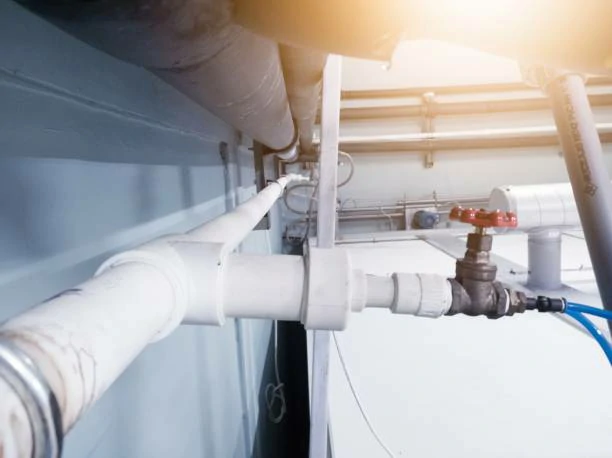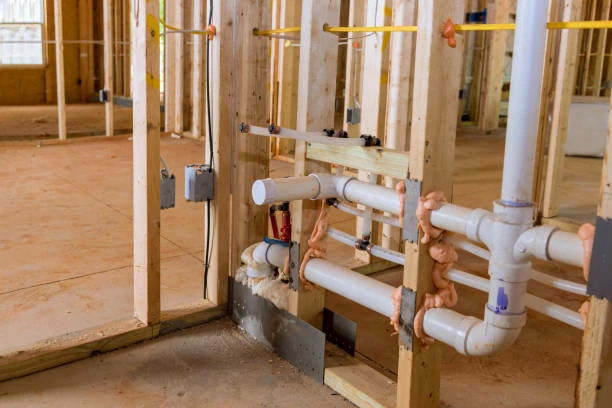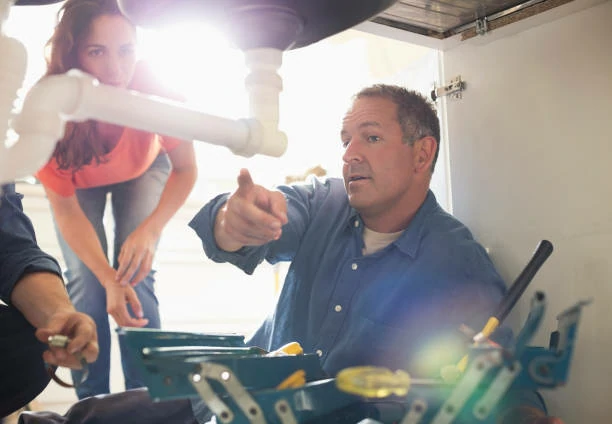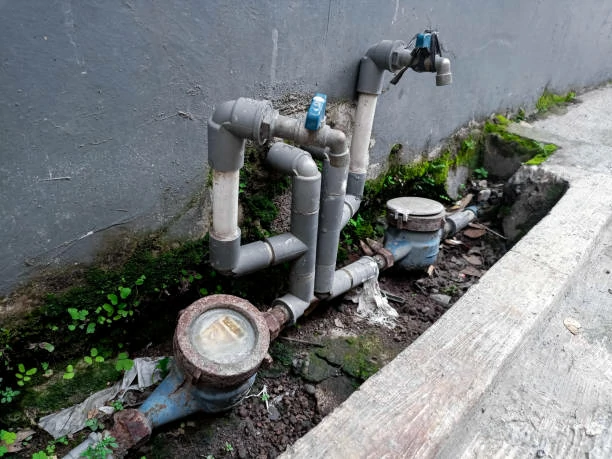PVC (Polyvinyl Chloride) pipes have become a go-to solution for fluid transfer systems in chemical plants due to their durability, chemical resistance, and cost-effectiveness. They provide a reliable and efficient means to transport various chemicals and fluids essential to the operations of chemical manufacturing and processing facilities.
Advantages of PVC Pipes in Chemical Plants
Chemical Resistance
PVC pipes resist a wide range of chemicals, making them suitable for transporting aggressive substances commonly found in chemical plants. They handle acids, bases, salts, and organic solvents without degrading. This chemical resistance ensures the longevity of the piping system and prevents contamination of the fluids being transported.
Durability and Longevity
PVC pipes offer exceptional durability and a long service life. They withstand harsh environmental conditions, such as extreme temperatures and UV exposure, without losing their structural integrity. This durability reduces the frequency of replacements and maintenance, leading to lower long-term operational costs.
Corrosion Resistance
PVC pipes resist corrosion, a common issue with metal pipes in chemical plants. Corrosion can lead to leaks, contamination, and pipe failure. By using PVC pipes, chemical plants avoid these issues, ensuring a more reliable and safe fluid transfer system.
Installation Benefits
Lightweight and Easy Handling
PVC pipes are lightweight, which simplifies transportation and installation within chemical plants. Their ease of handling reduces the labor and time required for installation, minimizing downtime and disruption to plant operations. This advantage becomes particularly significant in large-scale projects where efficiency is critical.
Versatile Joining Methods
Various joining methods, such as solvent welding, rubber gasket joints, and mechanical fittings, offer flexibility in installation. Solvent welding creates strong, seamless joints that prevent leaks, while rubber gasket joints allow for easy assembly and disassembly. These methods ensure secure and reliable connections tailored to the specific needs of the chemical plant.
Safety and Reliability
Leak Prevention
Ensuring leak-free fluid transfer is crucial in chemical plants to prevent hazardous spills and environmental contamination. PVC pipes provide secure connections and reliable performance, significantly reducing the risk of leaks. Proper installation and maintenance further enhance their leak prevention capabilities.
Pressure and Temperature Handling
PVC pipes handle a wide range of pressures and temperatures, making them suitable for various chemical processes. They maintain their structural integrity under high-pressure conditions and can withstand temperature fluctuations without becoming brittle or deformed. This resilience ensures consistent performance and safety in demanding environments.
Applications in Chemical Plants
Acid and Alkali Transfer
PVC pipes transport acids and alkalis, which are integral to many chemical processes. Their chemical resistance ensures that these substances do not degrade the pipes, maintaining the purity of the fluids and the safety of the system. Chemical plants rely on PVC pipes for the safe and efficient transfer of these aggressive substances.
Solvent and Organic Compound Handling
PVC pipes effectively transport organic compounds and solvents used in chemical synthesis and processing. Their resistance to organic chemicals prevents deterioration and contamination, ensuring the integrity of the chemical processes. This capability is essential for maintaining product quality and consistency in chemical manufacturing.
Wastewater and Effluent Management
Chemical plants generate various wastewater and effluents that need safe and efficient handling. PVC pipes are used in drainage and waste management systems to transport these byproducts to treatment facilities. Their corrosion resistance and durability make them ideal for managing aggressive and potentially hazardous waste streams.
Installation Process
Planning and Design
Effective installation begins with careful planning and design. Engineers assess the specific needs of the chemical plant, including the types of chemicals being transported, pressure and temperature requirements, and layout constraints. This assessment informs the selection of appropriate PVC pipe sizes, types, and joining methods.
Site Preparation
Preparing the site involves ensuring a clean and safe environment for installation. Technicians clear the area of debris and contaminants that could affect the integrity of the PVC pipes. Proper site preparation also includes planning for support structures and accommodations for thermal expansion and contraction.
Cutting and Joining
Accurate cutting and joining techniques ensure a secure and efficient installation. Technicians measure and cut the PVC pipes to the required lengths using pipe cutters or saws. They then join the pipes using solvent welding or rubber gasket joints, following manufacturer guidelines to ensure proper adhesion and sealing.
Maintenance and Inspection
Regular Inspections
Regular inspections identify potential issues before they lead to system failures. Technicians inspect PVC pipes for signs of wear, leaks, or damage. They check the integrity of joints and connections, ensuring that the system operates safely and efficiently.
Preventive Maintenance
Preventive maintenance extends the service life of PVC pipe systems. This maintenance includes cleaning the pipes to remove any buildup of residues or contaminants that could affect performance. Technicians also monitor the chemical composition of the fluids being transported to ensure compatibility with the PVC material.
Repair and Replacement
In the event of damage or wear, timely repair or replacement ensures the continued reliability of the fluid transfer system. Technicians isolate the affected section, cut out the damaged pipe, and replace it with a new segment. Proper joining techniques, such as solvent welding or gasket fittings, restore the integrity of the system.
Innovations in PVC Pipe Technology
Advanced Materials and Coatings
Recent advancements in PVC pipe technology focus on enhancing chemical resistance and durability. New formulations and coatings improve the pipes’ ability to handle a wider range of chemicals and more extreme conditions. These innovations ensure that PVC pipes remain a reliable choice for modern chemical plants.
Monitoring and Automation
The integration of monitoring and automation technologies enhances the performance and safety of PVC pipe systems. Sensors embedded in the pipes provide real-time data on flow rates, pressure, and temperature. This information allows for proactive maintenance and immediate response to potential issues, ensuring optimal operation and safety.
Environmental and Economic Benefits
Sustainability
PVC pipes contribute to environmental sustainability by reducing the need for frequent replacements and minimizing waste. Their long service life and recyclability further enhance their sustainability profile. By choosing PVC pipes, chemical plants promote environmentally responsible practices and reduce their environmental footprint.
Cost-Effectiveness
The cost-effectiveness of PVC pipes lies in their lower material costs, ease of installation, and minimal maintenance requirements. Chemical plants benefit from reduced operational costs and enhanced efficiency. The long-term savings achieved through the use of PVC pipes make them a financially viable option for fluid transfer systems.
Conclusion
PVC pipes offer numerous advantages for fluid transfer systems in chemical plants, including chemical resistance, durability, ease of installation, and cost-effectiveness. Proper installation, regular maintenance, and timely repairs ensure the reliability and safety of these systems. As advancements in PVC pipe technology continue to enhance their performance, they remain a critical component of efficient and sustainable chemical plant operations. By choosing PVC pipes, chemical plants achieve reliable and safe fluid transfer, supporting their operational and environmental goals.
Contact
IFAN is a professional manufacturer with 30 years of experience, dedicated to producing high-quality plastic pipes, fittings, and valves. Our products include brass valves, PPR valves, as well as various pipes and fittings to meet different customer needs. Whether you need plumbing and drainage pipes or valve products, IFAN can provide a diverse range of high-quality, cost-effective products to support your projects. Below is our contact information.
We will reply your email or fax within 24 hours.
You can call us at any time if there is any question on our production.
For more information,pls visit our webside https://www.ifanplus.com/
Pls Mailto: [email protected]






